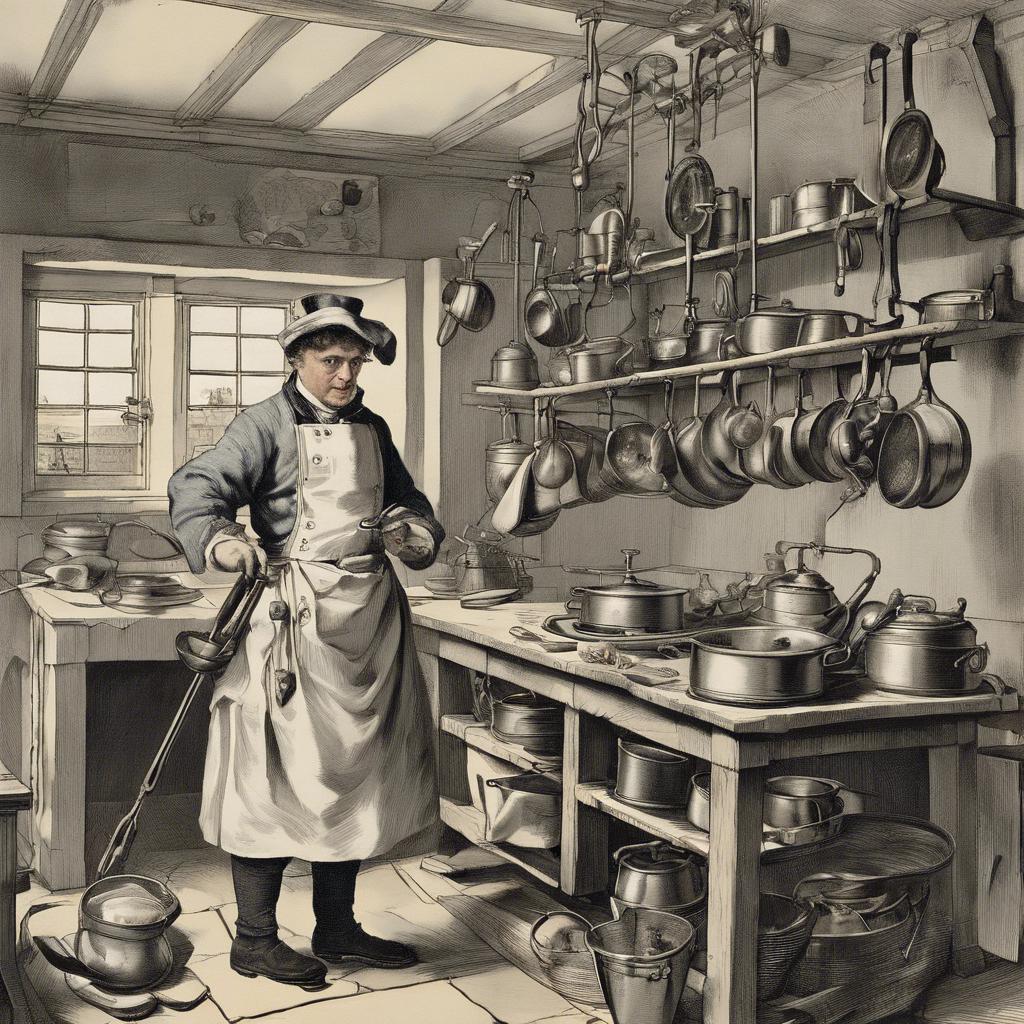In the annals of canine history, a now largely forgotten breed once held a crucial role in the kitchens of Europe: the turnspit dog. Bred specifically for their ability to assist in the preparation of meals, these hardworking animals toiled tirelessly at the wheels of roasting spits, ensuring that meats were cooked to perfection. Despite their storied past, turnspit dogs have faded into obscurity, their contributions overshadowed by technological advancements in cooking. Join us as we delve into the captivating tale of these unsung heroes of the culinary world.
Step Into the World of Cheryl Bolen
Dive into the enchanting stories of love, intrigue, and elegance set in the Regency Era. Cheryl Bolen's novels offer timeless romance and captivating tales that will leave you wanting more.
Explore Cheryl Bolen's Books Now
The Role of Turnspit Dogs in Kitchen Technology
Turnspit dogs, also known as kitchen dogs, played a crucial role in kitchen technology during the 16th to 19th centuries. These small, short-legged dogs were specially bred to work in kitchens, where they would tirelessly turn a wheel that rotated meat over a fire. This ingenious use of canine assistance helped cooks roast meat evenly and efficiently, contributing to the development of culinary techniques of the time.
Imagine the sight of these loyal dogs, running on a small treadmill-like device, tirelessly turning the spit for hours on end. Their unique anatomy, with sturdy bodies and short legs, made them well-suited for this demanding task. Despite the physical strain, turnspit dogs were valued for their dedication and contribution to the culinary arts.
While turnspit dogs are no longer used in modern kitchens, their historical significance in kitchen technology cannot be understated. These dogs were an integral part of the cooking process, showcasing the ingenuity and creativity of cooks in utilizing available resources. The legacy of turnspit dogs lives on in the evolution of kitchen technology and culinary practices.
Physical Characteristics and Training of Turnspit Dogs
Turnspit dogs were a unique breed known for their physical characteristics and role in assisting with kitchen tasks in the past. These dogs were typically small to medium in size, with a long body and short legs that allowed them to move swiftly around the wheel of a roasting spit. Their coats were often coarse and wiry, providing protection from the heat of the fireplace as they worked tirelessly turning the spit.
In order to prepare turnspit dogs for their demanding job, specific training was required. They were taught to run on the wheel in a continuous motion, keeping the meat cooking evenly over the fire. This training was essential to ensure the dogs understood their role and could perform their duties effectively. Additionally, proper care and feeding were crucial to maintain the dogs’ strength and stamina for their physically demanding tasks.
Despite their unique role in kitchens of the past, the use of turnspit dogs declined as advancements in technology replaced their manual labor. Today, these dogs are a rare breed, but their history and contributions to culinary practices are still remembered. The serve as a reminder of the ingenuity and resourcefulness of humans throughout history.
Impact of Turnspit Dogs on Culinary Practices
Turnspit dogs were a crucial part of culinary practices during the 16th to 19th centuries. These small, long-bodied dogs were specially bred to work in kitchens, turning meat on a spit over an open flame. Their unique abilities helped cooks evenly roast meats, ensuring a perfectly cooked meal for nobles and royalty.
The was significant. They played a vital role in the kitchens of wealthy households, where elaborate feasts were common. Without these dogs, cooks would have had to manually turn the spit for hours on end, a tedious and physically demanding task. Thanks to turnspit dogs, cooks could focus on other aspects of food preparation while the dogs worked tirelessly to ensure delicious meals.
Unfortunately, the use of turnspit dogs declined with the advent of mechanical roasting devices. Eventually, these dogs were no longer needed in the kitchen, and their breed fell out of favor. Today, turnspit dogs are mainly remembered for their historical significance in culinary practices, serving as a reminder of a bygone era in cooking.
Preservation and Conservation Efforts for Turnspit Dog Breeds
Efforts to preserve and conserve turnspit dog breeds have been gaining momentum in recent years. These unique dogs were once prized for their ability to assist in the turning of meat on a spit, a common cooking method in centuries past. However, as technology advanced and the need for turnspit dogs decreased, many of these breeds faced extinction.
One of the key ways in which preservation efforts are being carried out is through breeding programs that focus on maintaining the genetic diversity of turnspit dog breeds. By carefully selecting breeding pairs and monitoring the health and characteristics of offspring, breeders are working to ensure that these historic breeds continue to thrive for generations to come.
Additionally, educational initiatives aimed at raising awareness about turnspit dogs and their historical significance are helping to garner support for conservation efforts. By highlighting the important role that these dogs played in kitchens throughout history, advocates hope to inspire others to join in the mission to preserve and protect these unique and invaluable breeds.
Future Outlook
the turnspit dog occupies a unique and fascinating role in the history of culinary practices. From the kitchens of medieval castles to the bustling taverns of early modern Europe, these hardworking and loyal canines played a crucial role in the preparation of meals for centuries. While their utilitarian function has largely faded into obscurity, their legacy lives on in the annals of culinary history. The turnspit dog serves as a reminder of the ingenuity and resourcefulness of our ancestors, whose innovative solutions to the challenges of their time continue to captivate and inspire us today.


